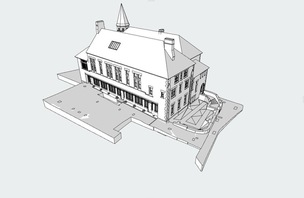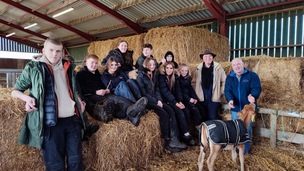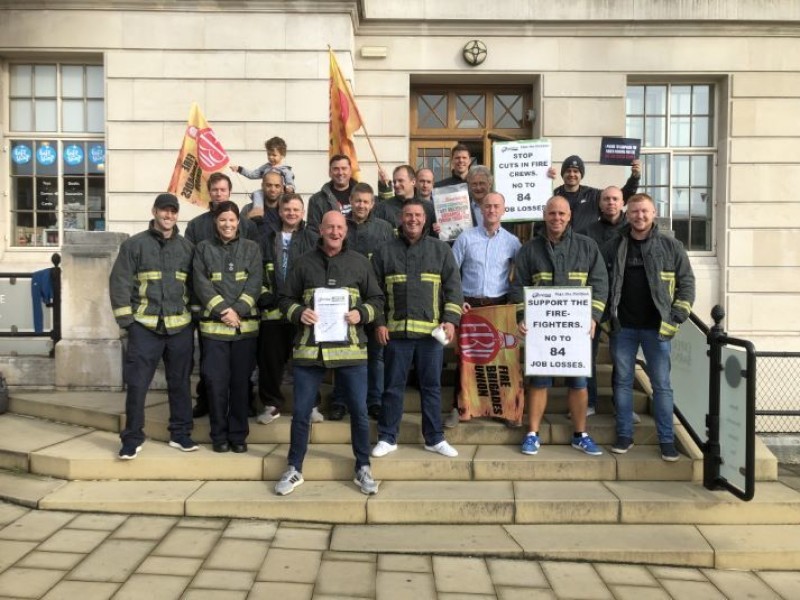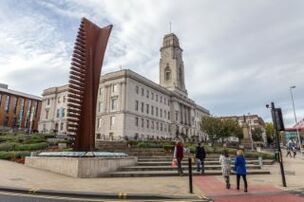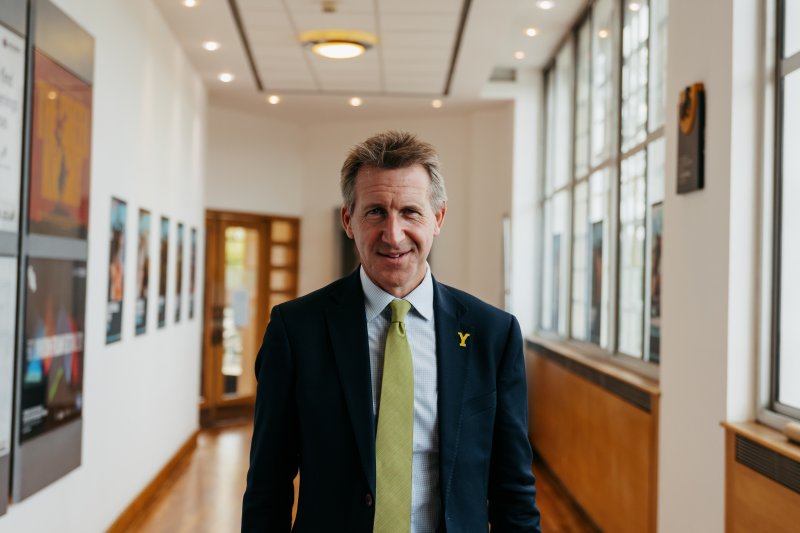PLANS to cut the number of firefighters on response crews have been shelved by fire authority members following a meeting in Barnsley this week - held as protesters demonstrated outside.
At a meeting of the South Yorkshire Fire and Rescue Authority at the town hall on Monday, proposals to reduce the number of firefighters manning a fire engine from five to four were tabled as a solution to the £4m deficit South Yorkshire Fire and Rescue Services (SYFRS) faces in its budget.
But amid pressure from the Fire Brigades Union (FBU) and alternatives proposed in a consultation earlier this year, members resoundingly voted to halt the cuts - which the FBU claimed would see 84 jobs lost - for the remainder of the financial year while exploring other ways to claw back the deficit.
Chief fire officer James Courtney said: “In responding to the consultation feedback, we’ve already described the savings we’ve made to protect our frontline service and we will continue to explore further options, as directed by members.
“However, whilst we would rather not make any changes to our frontline service at all, we’re pleased that the fire authority has acknowledged that riding with four firefighters on a fire engine remains a viable solution should we be required to implement it.
“We will only implement this change as and when the financial situation dictated and if ultimately it proved to be less pressing than currently envisaged then we would not implement the proposal any more extensively than we have to.
“If the situation improves financially then this particular proposal is one that can easily be reversed.”
Alternatives discussed at the meeting include recruiting new firefighters to move away from the current costly reliance on overtime to fill posts, acquiring new technology and using the authority’s reserves to overcome any further shortfalls - as well as continuing to monitor injury and sickness levels to better understand the effect of any reductions in staffing.
In making their decision, members noted the initial proposals to cut crews were based on ‘worst-case scenario’ projections that may not materialise - but conceded that the cuts would still go ahead if viable alternatives did not achieve the level of savings predicted.
“I get the observations that maybe things aren’t quite as bad as we thought they were going to be,” added CFO Courtney. “But there’s a huge amount of uncertainty still out there.”
Police and crime commissioner Dr Alan Billings highlighted lobbying central government for further funding as another potential route to solving the deficit.
“We now know that we’re not facing a worst-case scenario,” said Dr Billings.
“The consultation made it very clear that the public are concerned about fire and safety. There’s anxiety and concern about anything that seems to reduce the service.
“We do have to press the government and elected members very firmly as we go forward.
“But I do think one of the weaknesses of Fire and Rescue has been the fact that we do hold very large reserves.
“Police have had to commit reserves in recent times in a way this authority has not had to do.”
The decision followed an extensive campaign by the FBU which saw lobbying in parliament and a 200-strong protest organised by members in Sheffield - some of whom attended Barnsley Town Hall on Monday.
Neil Carbutt, FBU South Yorkshire brigade secretary, said: “SYFRS has been consistently underfunded by central government. It is positive that the fire authority has decided to halt the cuts, but we need fairer funding for our service.
“The fire authority must go to the government and demand adequate funding so that we can provide a safe service to local communities.
“We’d like to say a huge thank you to members of the public and the Labour and trade union movement for their unwavering support. It’s thanks to them, and the hard work of FBU members that we’ve been able to win our campaign and continue to keep South Yorkshire safe.”

